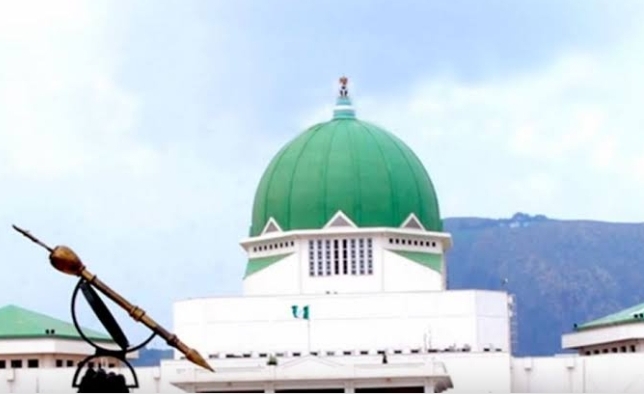Tuesday May 20, 2025 |
BudgIT, a civic tech organisation advocating transparency in public finance, has uncovered 11,122 projects worth ₦6.93 trillion allegedly inserted into the 2025 Federal Government budget by the National Assembly, raising serious concerns over accountability and fiscal responsibility.
The organisation made the revelation in a statement issued on Tuesday, May 20, and signed by its Senior Communications Associate, Nancy Odimegwu.
“What began as isolated irregularities has, over the years, evolved into a deeply entrenched culture of exploitation and abuse, with the budget process now a playground for self-serving political interests, led by top-ranking members of the National Assembly,” BudgIT stated.
According to BudgIT’s analysis, 238 projects worth over ₦5 billion each, totalling ₦2.29 trillion, were inserted without sufficient justification.
It also revealed that 984 projects valued at ₦1.71 trillion and another 1,119 projects ranging from ₦500 million to ₦1 billion, totalling ₦641.38 billion, were added indiscriminately.
“These insertions, far from promoting development, appear tailored to satisfy narrow political interests and personal gains rather than the citizens’ interests,” the group said.
A breakdown showed that 3,573 of the projects, amounting to ₦653.19 billion, were allocated to federal constituencies, while 1,972 projects worth ₦444.04 billion were tied to senatorial districts.
Among the questionable allocations were 1,477 streetlight projects worth ₦393.29 billion, 538 boreholes at ₦114.53 billion, and 2,122 ICT-related projects costing ₦505.79 billion. Additionally, ₦6.74 billion was marked for the “empowerment of traditional rulers.”
It further noted that even more alarming was the impact on specific ministries. The Ministry of Agriculture, for instance, had its capital budget inflated from ₦242.5 billion to ₦1.95 trillion as a result of 4,371 projects worth ₦1.72 trillion—representing 39% of all insertions
Other ministries similarly affected include the Ministry of Science and Technology, which received project insertions worth ₦994.98 billion, and the Ministry of Budget and Economic Planning, which saw additions totalling ₦1.1 trillion.
BudgIT also highlighted the misuse of smaller agencies such as the Nigerian Building and Road Research Institute (Lagos) and the Federal Cooperative College, Oji River, as dumping grounds for politically motivated projects beyond their capacity.
“The Federal Cooperative College, Oji River, a training institution, was saddled with: ₦3 billion for utility vehicles to support farmers and distribution agents; ₦1.5 billion for rural electrification in Rivers State; and ₦1 billion for solar streetlights in Enugu State,” the group noted.
Despite these glaring discrepancies, BudgIT said the Presidency has remained silent. “We submitted formal letters outlining our findings to the Presidency, the Budget Office, and the National Assembly. While these letters were acknowledged, no response was received,” the statement said.
“Even more concerning is the silence from the Presidency, silence which, in the face of overwhelming evidence, amounts to complicity.”
Gabriel Okeowo, BudgIT’s Country Director, described the scale of the insertions as a direct threat to national planning and citizen trust.
“The insertion of over 11,000 projects worth ₦6.93 trillion into the 2025 budget by the National Assembly is not just alarming, it is an assault on fiscal responsibility,” Okeowo said.
“This trend, increasingly normalised, undermines the purpose of national budgeting, distorts development priorities, and redirects scarce resources into the hands of political elites. Nigeria cannot afford to run a government of projects without purpose.”
BudgIT is now urging President Bola Tinubu to demonstrate strong leadership by reforming the budget process in line with national development goals.
It also called on the Attorney General to seek constitutional interpretation from the Supreme Court on the powers of the National Assembly to insert new capital projects without executive approval.
The statement concluded with a call to action: “We hope that the anticorruption agencies, the Economic and Financial Crimes Commission (EFCC) and the Independent Corrupt Practices Commission (ICPC), will also take action to track these projects and ensure Nigeria gets value for money.”
“We also call on citizens, the media, civil society organisations, and the development community to speak out and demand reform.
This is not merely about financial mismanagement, it is a matter of justice, equity, and the future of accountable governance in Nigeria,” BudgIT added.
Related posts
Categories
- Advertisements (1)
- Agriculture (45)
- Breaking News (26)
- Business (598)
- Crime (989)
- Education (319)
- Entertainment (128)
- Features (13)
- For The Records (43)
- Foreign News (1,189)
- Health (219)
- Home News (332)
- Interview (9)
- Judiciary (349)
- Lifestyle (140)
- Local News (111)
- National News (1,448)
- Opinion (26)
- Politics (1,012)
- Religion (157)
- Science and Technology (125)
- Security (680)
- Sports (880)
- States' News (819)
- Transportation (330)
- Uncategorized (10)

